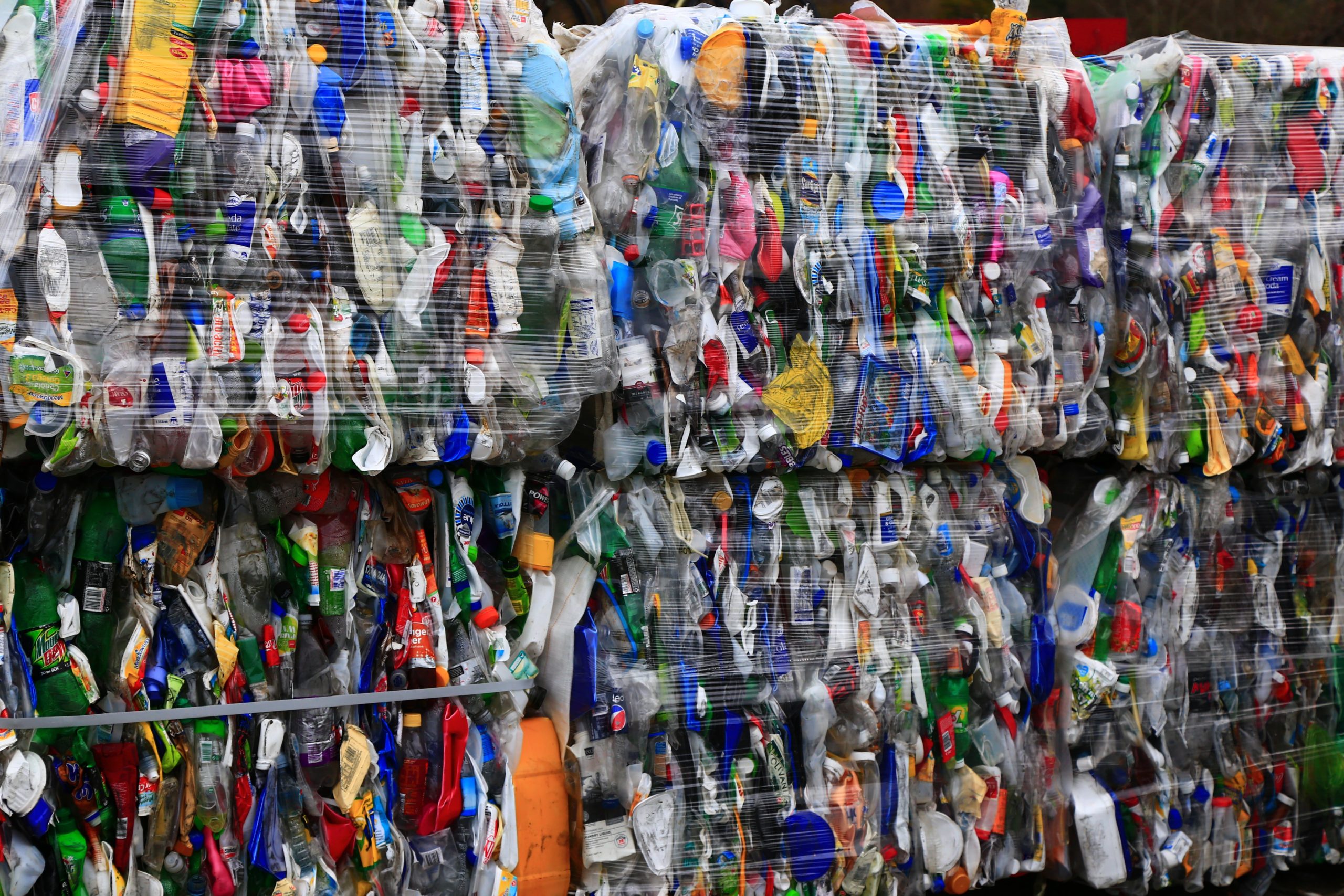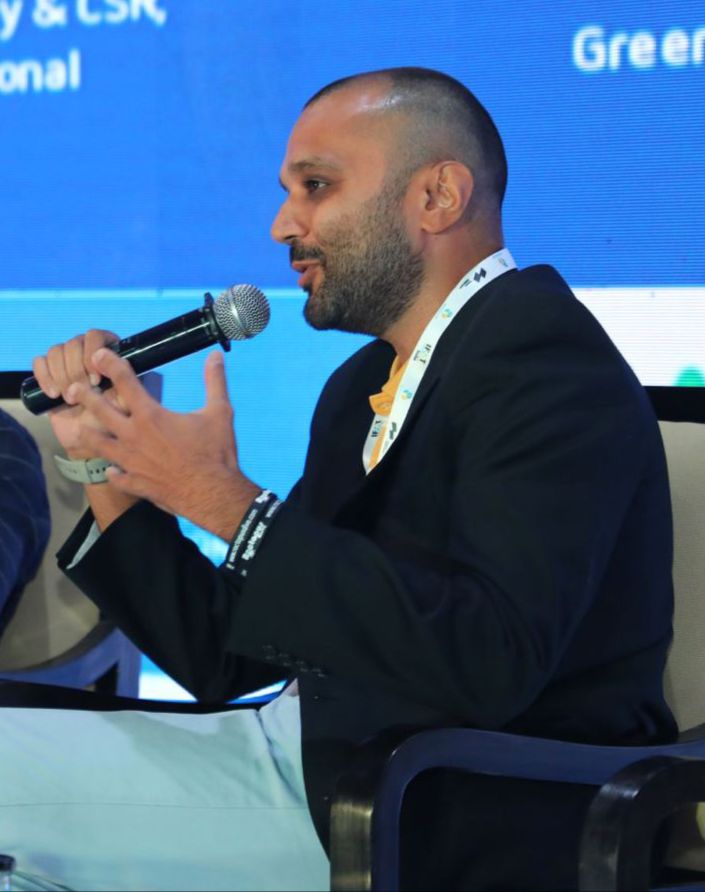
Representational image by Nareeta Martin on Unsplash

Mr Saurabh Shah, Managing Director, Landbell GreenForest Solutions, an Extended Producer Responsibility (EPR) Services and waste advisory organization based in Mumbai, has been a leading voice at various platforms on India’s rapidly growing waste sector. Landbell GreenForest Solutions is a joint venture of two German companies – Landbell group, one of the world’s largest EPR services companies and present in 17 countries and with more than 30,000 customer base offering services in EPR for plastic, electronic, and battery waste. The other partner is BlackForest Solutions, headquartered in Berlin. It offers advisory services and operations for different streams of waste across countries.
SolidWasteIndia’s Editor-in-Chief Aafrin Kidwai recently caught up with Mr Shah to discuss how EPR is operating at the ground level.
Q1. Tell us about your company, Landbell Green Forest Solutions.
We offer two different kinds of services: One is EPR for plastic waste management and the other is that we offer waste management advisory services to government and private sector customers in India. This project is making a good impact on the ground. We also advise brands on solutions for take-back programs for their specific waste streams and offer advisory services for the recyclability of plastic waste. It’s early days for us since we started out recently.
Q2. What do you feel has been the biggest achievement of the government in terms of plastic waste management?
Several international EPR experts who’ve read the Plastic Waste Management Rules feel that this is one of the best EPR rules drafted. At the same time, however, they think it is too ambitious. Some of the targets that have been set for the brand owners and recyclers in terms of achieving minimum levels of recycled content are very ambitious.
However, a lot of us believe that India has a great opportunity to leapfrog in the recycling game. For example, one question that often gets asked is whether India has enough recycling capacity to enable the brands to be able to meet their EPR targets. In response, I say that recycling capacities are being added at great speed. Also, so many – close to 3000 brands producers, and brand owners – have registered on the Central Pollution Control Board (CPCB) portal declaring their EPR targets. This is a great achievement.
Q3. What are some of the gaps that persist in the EPR system?
The biggest gap in EPR and plastic waste management is transparency. Are we moving all the plastic from the streets to the recycling plants with full accountability? The likely answer is no. But, we must also understand that for such a regulation to come into a country as big and populous as ours, and with this amount of waste generation, it is going to take a while.
This is the biggest challenge the government is grappling with. Of course, it is trying to put processes in place in terms of digitizing registration, implementing, and filing returns. We all hope that there will be better transparency and accountability on the part of all stakeholders so that we can confidently say that whatever is being declared as the EPR targets is actually being moved and recycled.

Q4. In hindsight, what could the government have done better while introducing EPR?
In terms of implementation, the government could have addressed gaps in recycling capacity at the ground-level. For instance, in certain areas like the minimum level of recycling or use of recycled content, it should have first given an impetus to augmenting the capacity of recycling so that brands don’t have to run from pillar to post to figure out who is going to recycle their waste. That is one gap that the government could have tried to address before they came up with a policy.
Q5. How are India’s corporates responding to EPR?
Interestingly, in a lot of South East Asian countries, where EPR hasn’t yet been introduced, they don’t want it. In India too, initially the brands tried to avoid compliance but I think they have come to terms with the fact that they have to comply.
I think that corporates really need to understand the real cost of EPR. Right now, there is a lot of bottom-fishing going on in terms of trying to fulfill their compliance at the lowest possible cost. But I think, as we go along, they will realize that the actual price is higher and start accounting or apportioning for it in their budget. They were first resisting it, then unwillingly accepted it, but now I think the top 1000 brands have more or less come to terms that this is going to be the way of doing things and they have accepted it.
Q6. What about monitoring EPR implementation companies like your own? This remains one of the weakest links in the EPR chain.
We are an implementation agency and there’s always got to be checks and balances. One level of checking happens by the brand where they confirm whether what we have submitted to them is fair and meets the requirement of the CPCB. Regarding the CPCB, it appears that it is relying heavily on technology. Going forward, it appears that the CPCB is going to introduce spot audits for brands at the recyclers to ensure that the material is being accounted for in a proper and transparent manner. It is going to be a tall task for the CPCB.
Q7. What are your future plans for Landbell GreenForest Solutions?
We want to increase our offerings in terms of both, EPR services for recyclable and non-recyclable waste. We also want to offer novel, technology-based solutions to brands for meeting their circularity goals in terms of take-back solutions. More and more brands are going to ask for their own post-consumer material to be taken back and sent to recyclers of their choice. So that’s going to be a major mandate. Reverse logistics and technology are going to play a major role. Also, besides plastic there is also EPR for e-waste and batteries and we also plan to offer these services very soon to brands in India.



